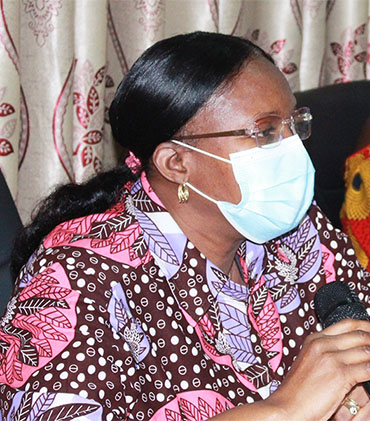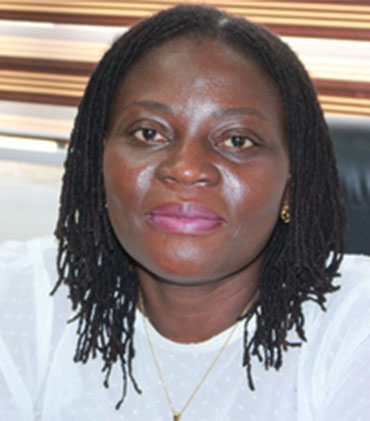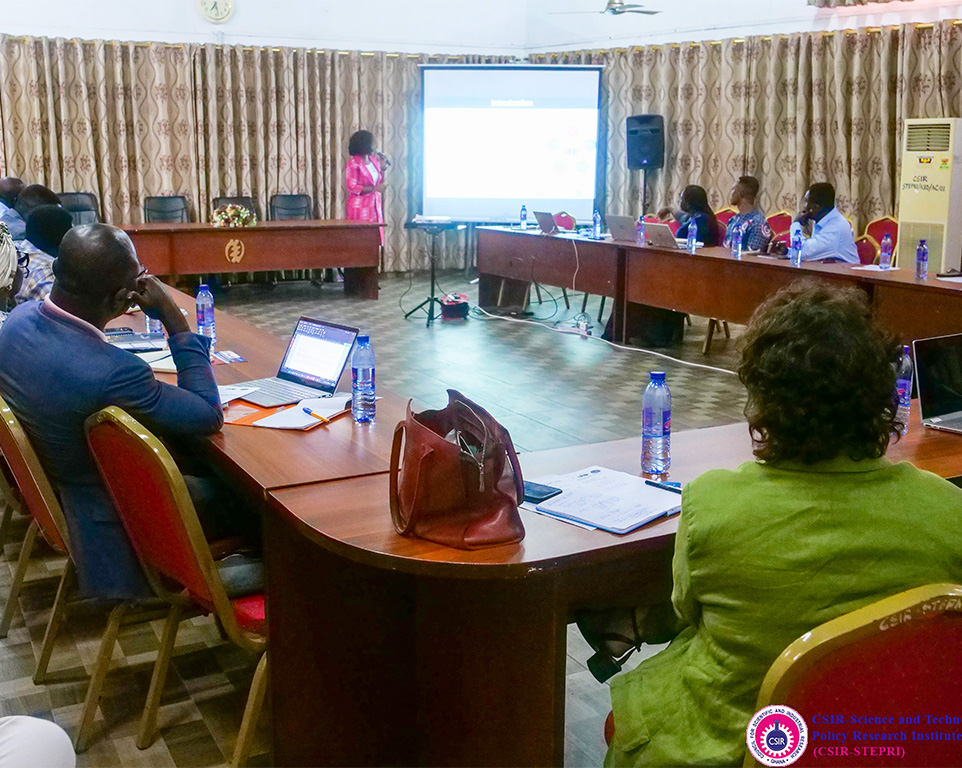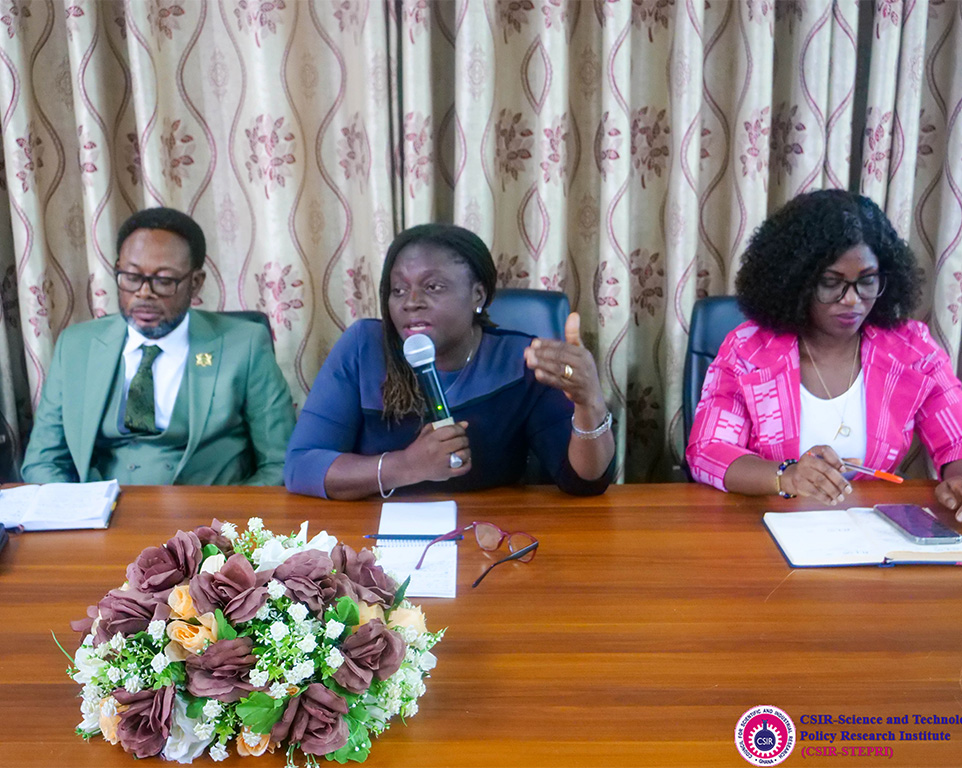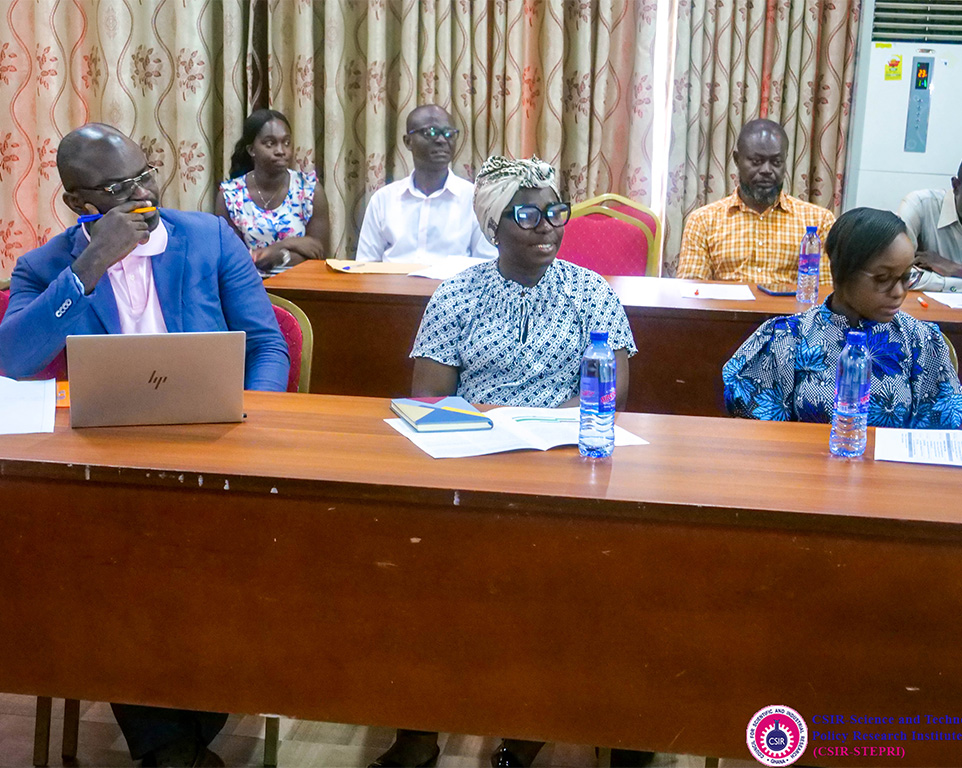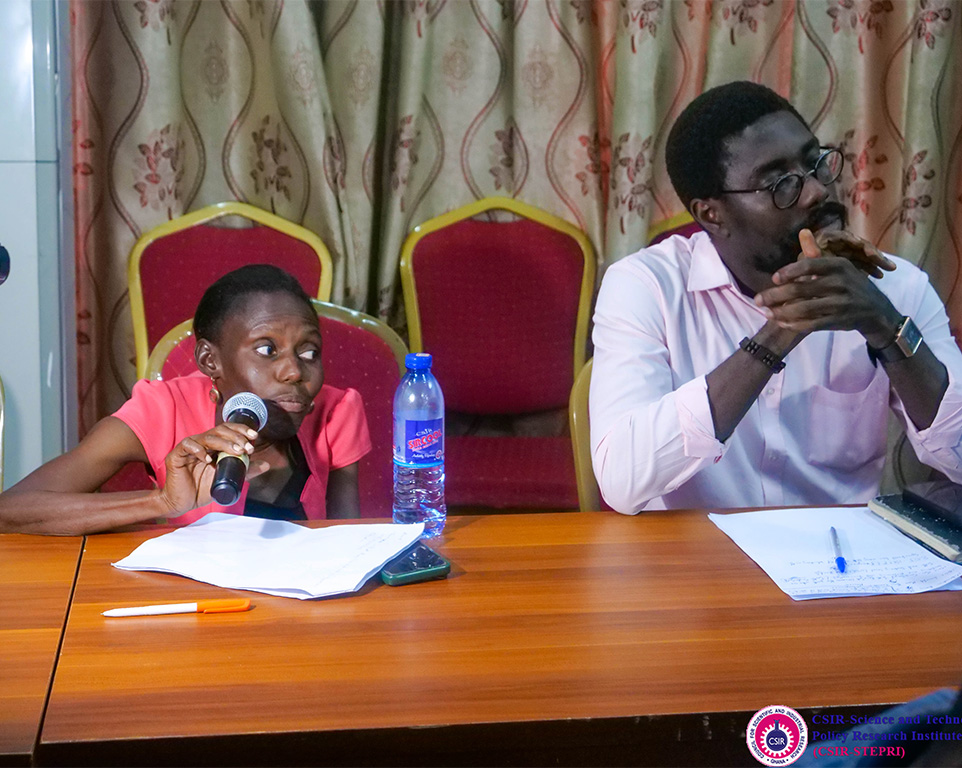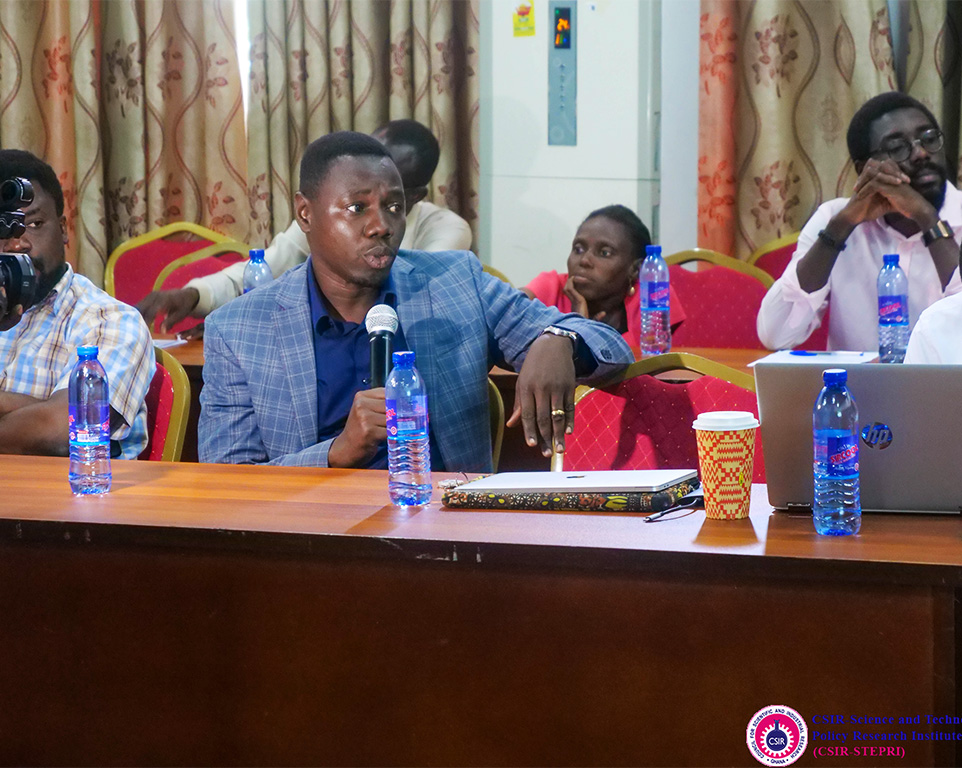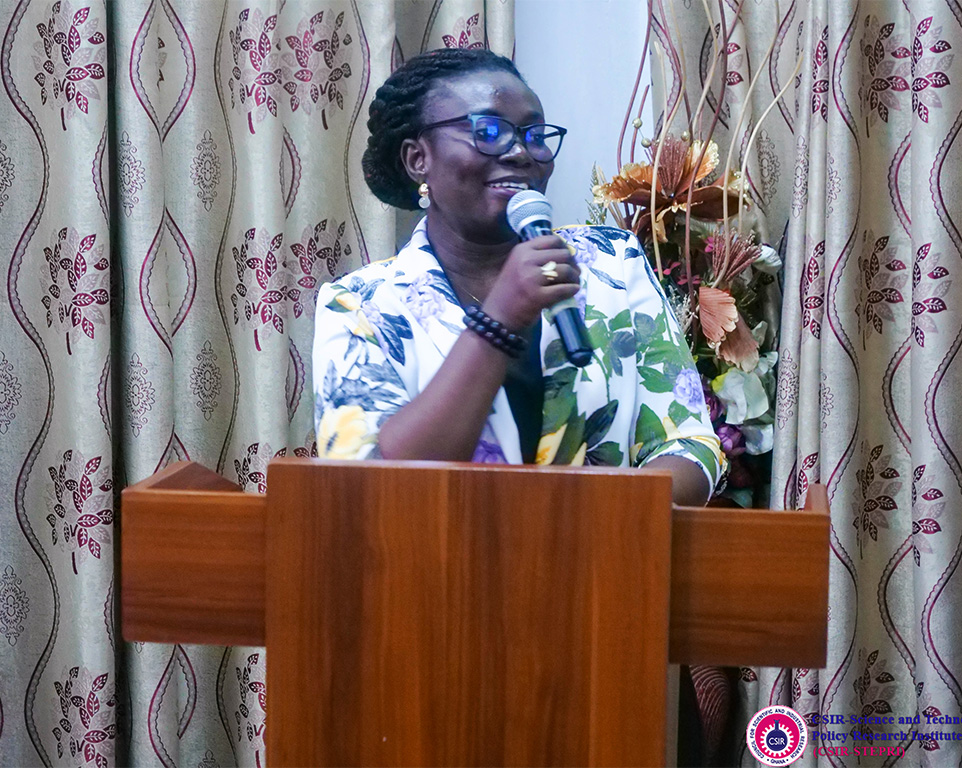DIISS-G
Project Detail
- Specific CSIR Thematic area:Science and People
- Collaborating institutions/partnership: Ministry of Environment Science Technology and Innovation, National Entrepreneurship and Innovation Programme
- Duration:36 months
- Funding source (donor):International Development Research Centre (IDRC), Canada
Participating scientists (with PI)
Specific Objective
- Strengthen the capacities of project partners on policy and programme evaluation for continuous policy learning to inform innovation policy and support for SME development.
- Generate empirically-driven research that characterizes the SME ecosystem and identifies strategies to enhance SME development.
- Assess the performance and impacts of programmes implemented by the NEIP from an equity, diversity, and inclusion (EDI) perspective.
- Establish a network/community of practice (CoP) to promote collaboration among institutions interested in innovation policy in Ghana.
Expected Outcome
- The expected outcome of this research is an evaluation of three programmes that the NEIP is implementing to support SMEs in Ghana.
- A corollary of this evaluation is the availability of evidence showing the performance of these interventions and how the benefits of the programmes are distributed among the beneficiaries in an equity, diversity and inclusive perspective.
- In addition, an outcome of this research is to understand the SME ecosystem in Ghana and enhance the capacities of partnering organisations to be able to carry out programme/policy impact evaluations.
Major Outcomes
- Training on data management and processing for curation in repositories.
- Training on gender analyses.
- Training on innovation policy and project impact evaluation.
- Report on the SME ecosystem in Ghana.
- Paper in Press on systematic review.
Major policy action needed
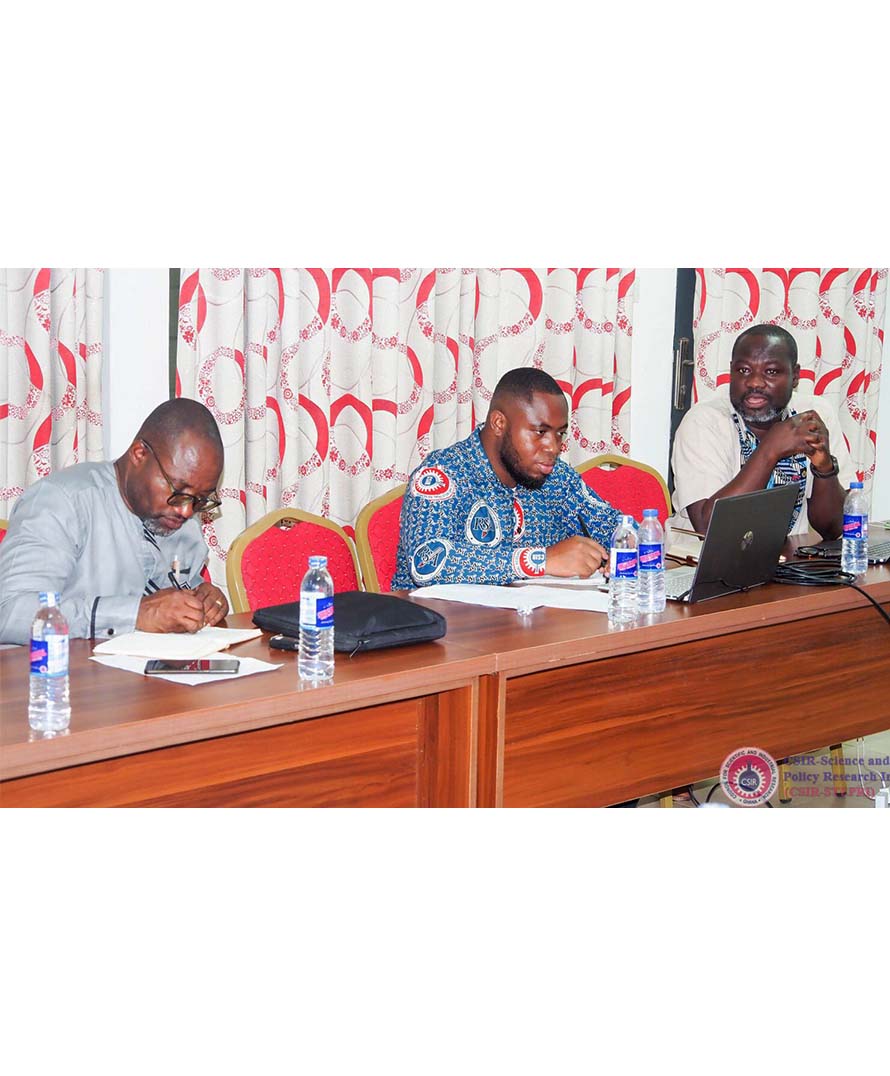
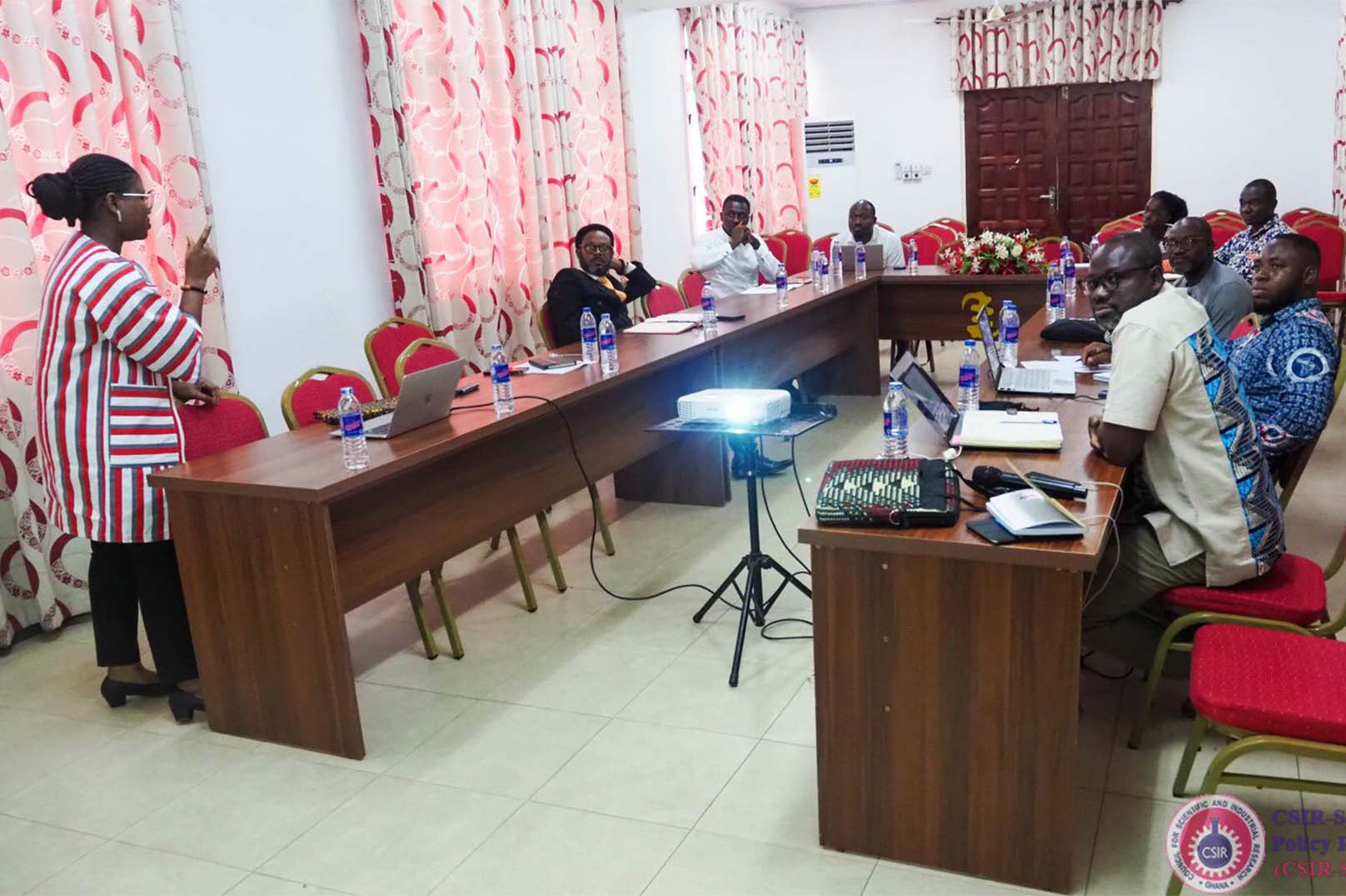
Policy Briefs
Project News
CSIR-Science and Technology Policy Research Institute Organises Workshop on Distributional Impact of Innovation and MSMEs Support.
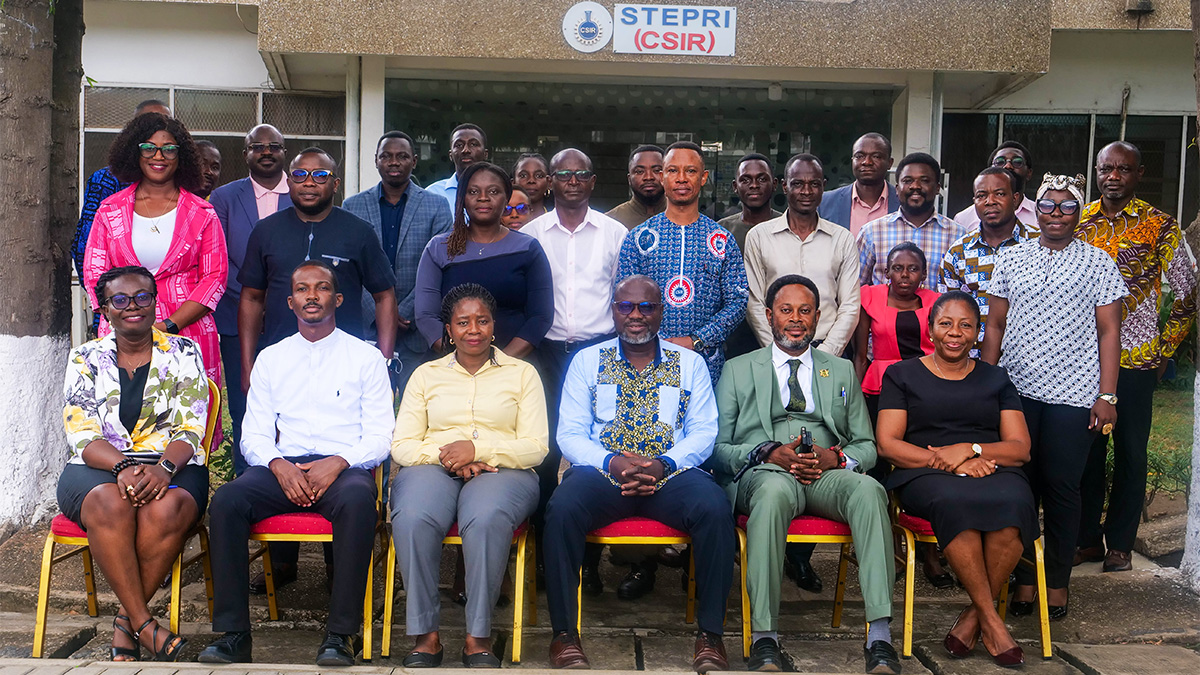
On 1st October 2024, CSIR-STEPRI hosted a dissemination workshop under its Distributional Impacts of Innovation and SME Support in Ghana (DIISS-G) Project. The DIISS-G Project is generously funded by the International Development Research Centre (IDRC), Canada. The workshop aimed to share research findings from the DIISS-G project, which examines the performance and distributional impacts of innovation and Micro, Small, and Medium Enterprises (MSMEs) support programmes implemented by the National Entrepreneurship and Innovation Programme (NEIP). The event brought together key stakeholders from government institutions, private sector entities, academia, and international development partners.
In her welcome speech, Dr Wilhemina Quaye, Director of CSIR-STEPRI, highlighted the critical role of MSMEs in Ghana’s socio-economic development. She noted that MSMEs contribute about 60% of the country’s GDP and provide 80% of employment. Dr Quaye emphasised the importance of innovation programmes like NEIP in addressing youth unemployment and creating inclusive economic opportunities. She further noted that the DIISS-G project aims to enhance the capacities of institutions in Ghana while generating evidence on the performance of these innovation programmes, particularly from an equity, diversity, and inclusion (EDI) perspective.
Dr Jonas Kofi Arhin, Director of Operations at NEIP also delivered a welcome address, underscoring the critical role of innovation and MSMEs in driving economic growth in Ghana. He discussed the opportunities and challenges facing MSMEs, including access to finance, technology, and infrastructure, particularly in rural areas. Dr Arhin recommended the establishment of regional innovation hubs and the creation of financing models that cater to underserved groups such as women and persons with disabilities (PWDs).
Dr Gordon Akon-Yamga, the project lead, presented an overview of the DIISS-G project. He explained that NEIP, established in 2017, had not undergone a systematic evaluation of its programmes, which led to the need for this research. The DIISS-G project sought to assess the performance and impacts of NEIP’s interventions on MSMEs from an EDI perspective. Dr Akon-Yamga also highlighted the project's efforts to build the capacity of stakeholders through training on impact evaluation and EDI.
The workshop featured two key presentations on the project’s research findings:
- Evaluation of the Presidential Business Support Programme (PBS)
Dr Justina A. Onumah presented findings that showed a general improvement in the financial performance and labour productivity of MSMEs that participated in the NEIP programme. However, the study revealed disparities in participation, with more male and urban-based entrepreneurs benefiting compared to female and rural entrepreneurs. The research recommended increasing outreach to female-led enterprises, providing targeted support for youth entrepreneurs, and focusing on non-financial performance areas like technology adoption and employment generation. - Assessment of the Presidential Empowerment of Women Entrepreneurs with Disabilities (PEWED)
Dr Mavis Akuffobea-Essilfie discussed the positive impact of NEIP’s PEWED programme on women entrepreneurs with disabilities. Beneficiaries reported improvements in business growth, independence, and resilience, particularly during the COVID-19 pandemic. Despite these successes, participants highlighted ongoing challenges, including limited access to capital and market opportunities. The study recommended continued support and tailored interventions to meet the unique needs of women entrepreneurs with disabilities.
The workshop concluded with a lively question-and-answer session, where participants, including representatives from the Ministry of Trade and Industry, Ghana Chamber of Commerce, and various entrepreneurship hubs, contributed insights and recommendations. Some key suggestions included focusing on entrepreneurship programmes at tertiary institutions, linking beneficiaries to larger industries for experiential learning, and conducting needs assessments to determine the appropriate level of financial support for MSMEs.
In closing, Mr Edem Dennis from the Ministry of Environment, Science, Technology and Innovation (MESTI) acknowledged the valuable insights shared during the workshop. He emphasised the importance of incorporating the research findings into future policy initiatives to ensure that innovation and entrepreneurship programmes are inclusive and impactful. Dr Wilhemina Quaye also reaffirmed CSIR-STEPRI’s commitment to building partnerships and collaborating with stakeholders to drive innovation policy in Ghana.
Overall, the DIISS-G workshop highlighted the need for inclusive policies that address systemic barriers faced by women, youth, and rural entrepreneurs. The findings from the project will inform future policy and programme adjustments to ensure more equitable and sustainable support for MSMEs in Ghana, fostering inclusive economic growth across the country.



